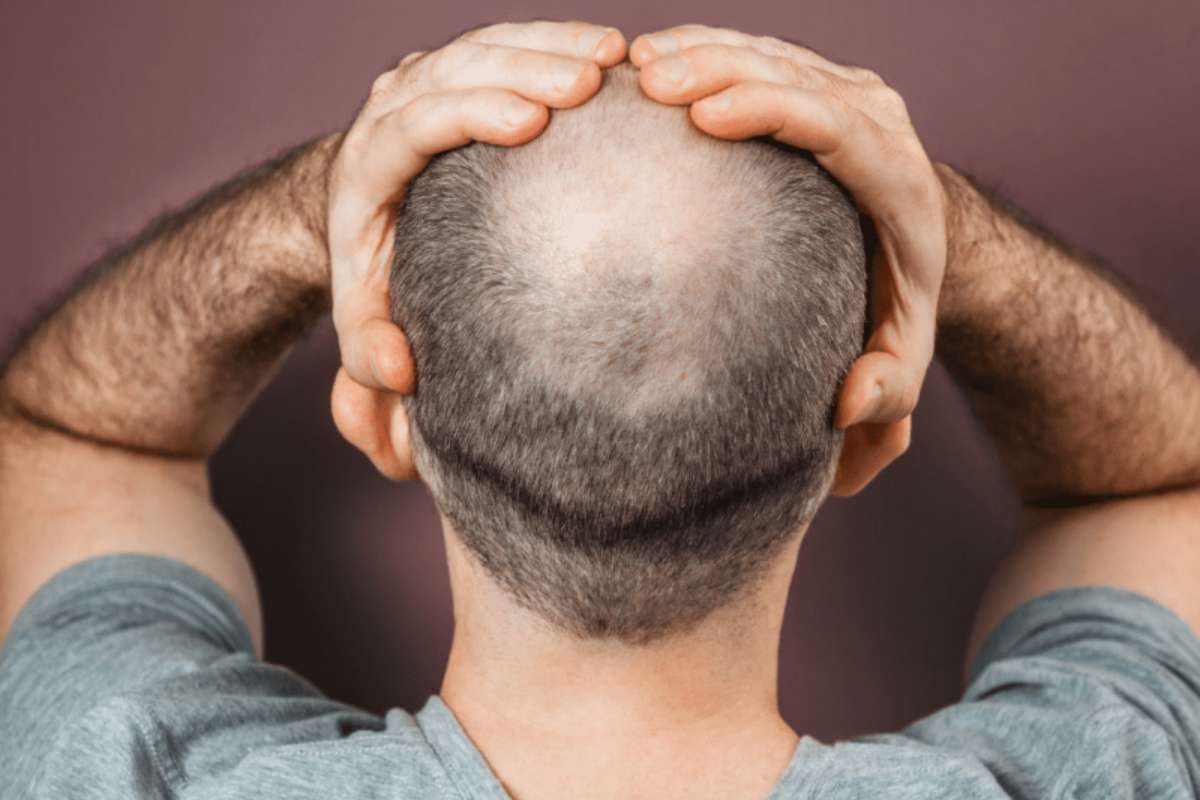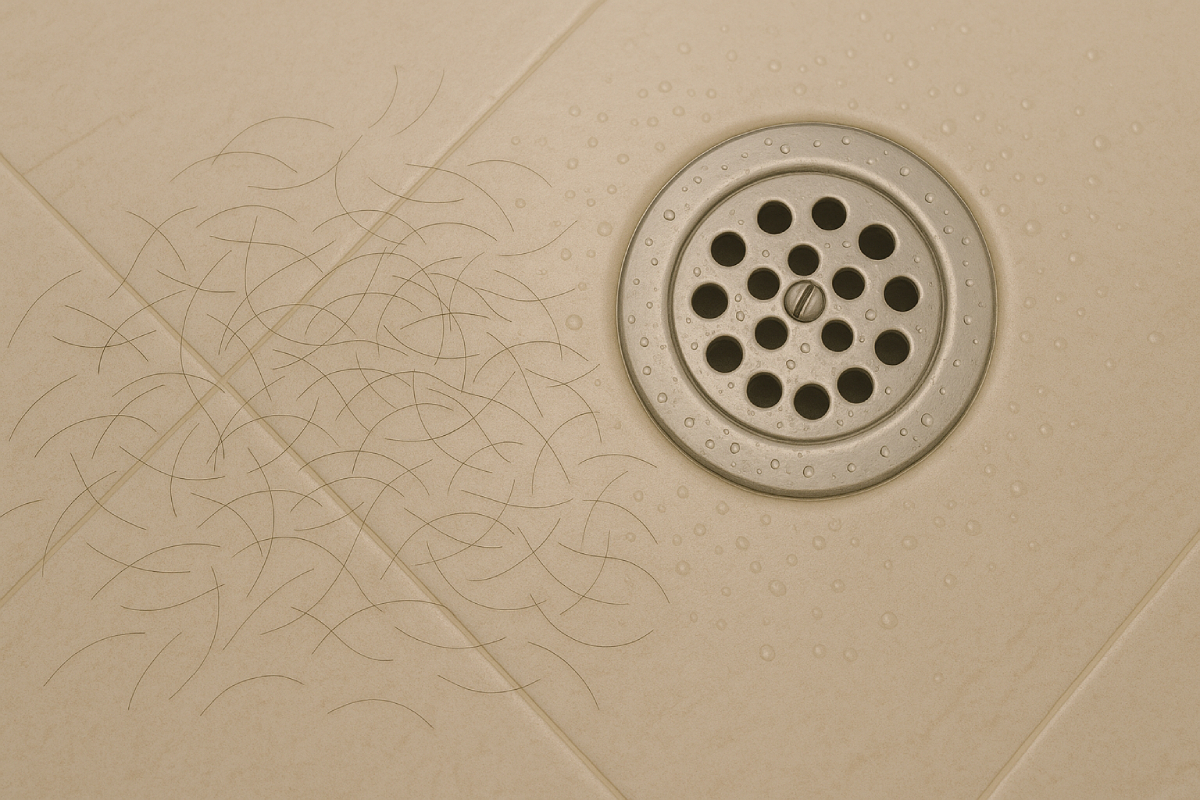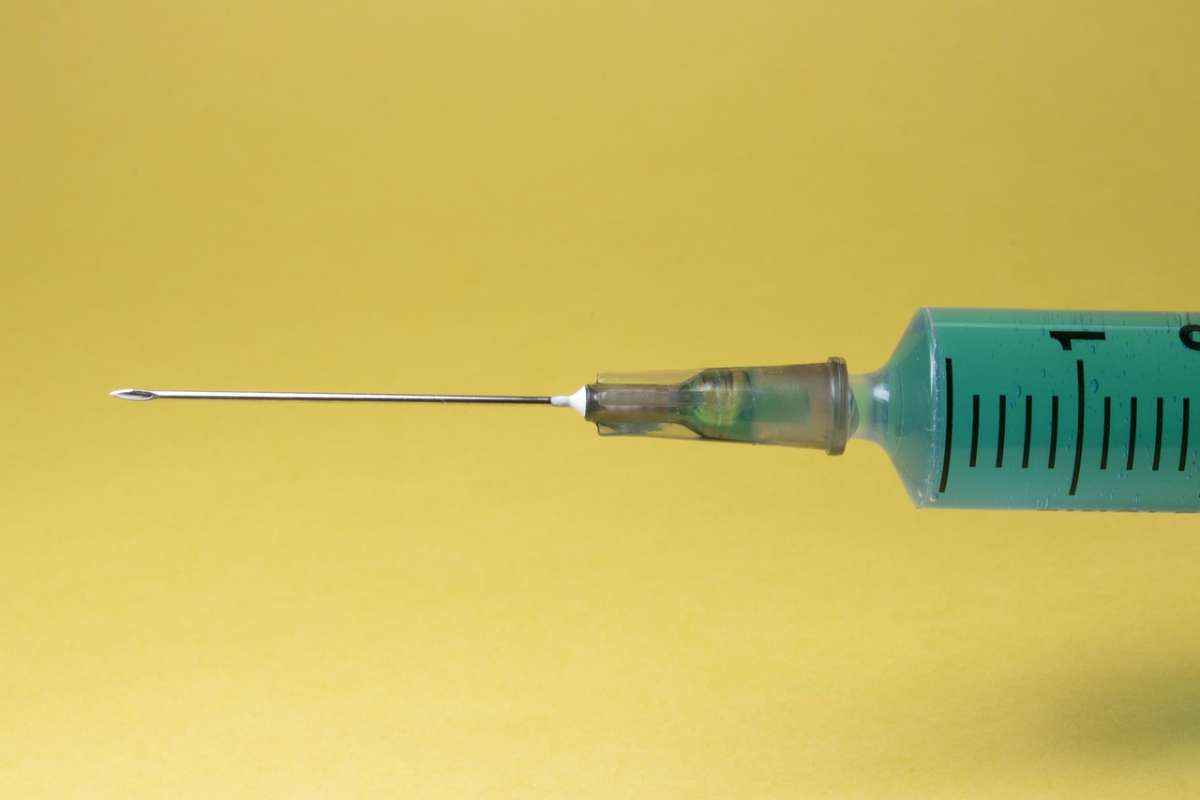The main cause of hair loss in men usually boils down to genetics, but that doesn’t stop people from assuming the worst from the products they use on their hair. In most cases you’re hair loss, or thinning, is not being caused, or exacerbated by the products you’re using in your hair… at least not permanently.
Many patients worry about hair loss or thinning and after searching the internet, sometimes attribute it to dangerous chemicals in hair products, or products that may clog the pores in your scalp. Dr. Krejci has had many patient ask if the minerals or chemicals in their local water could be the problem. But in most cases, these are not the culprit and while cleaning your hair properly is important, ceasing use of your regular products or even changing water will not change your hair growth.
Permanent hair loss comes mainly from genetics and/or aging, but can also be related to underlying diseases or other health conditions and also medications to treat health problems. In these cases it’s important to seek out medical advice to determine what the true cause of your hair loss is, so that the best course of treatment can be established.
Of course, nobody believes that their genetics and aging is the primary reason why they are losing their hair, so people always look for an outside source to blame. One of the things that people have come to blame for their thinning hair is the shampoo they use, and in this case we’re going to be looking at Head and Shoulders dandruff shampoo, and whether or not this product is causing hair loss, or hair thinning, in some people.
Can Head and Shoulders Shampoo Cause Hair Loss?
Head and Shoulders is one of the most recognizable brand names when it comes to dandruff and dry scalp relief and prevention. It’s the go-to brand for most people suffering from these conditions, but it has led some people to believe that the chemicals in the shampoo are causing their hair to fall out. But that’s probably not the case.
Using Head and Shoulders shampoo is usually the result of person trying to get rid of some sort of dry, flaky, itchy scalp. Even Sophia Vergara can be seen proclaiming its benefits alongside her son in commercials displaying her long, flowing, shiny, flake-free hair. Dandruff, psoriasis, and seborrheic dermatitis can all cause these issues in the scalp, but they are all quite different in the way they affect our hair, which could lead to the confusion about Head and Shoulders shampoo itself being the cause of hair loss.
Dandruff itself is not harmful to the hair and will not cause your hair to fall out. Dandruff is an acceleration of the cell turnover rate in your scalp. Normally you don’t notice the cells as they die and flake off of your scalp because they are so small, but when they die off at a quicker pace and they clump up, you’ll begin to notice them.
Seborrheic dermatitis is another common skin condition- more severe than just dandruff, that can affect the face, ears, chest and groin, but primarily the scalp, It is characterized by waxy or greasy scale and redness in patches. If you’ve ever seen a newborn baby with cradle cap, then you’ve witnessed Seborrheic dermatitis.
Psoriasis is even more inflammatory and can have thick silvery or whitish scaly or red plaques on the scalp and ears. Psoriasis is often also found on other areas of the body like elbow, knees, hands/feet, buttocks, and groin.
These scalp conditions can be helped by using Head and Shoulders shampoo, but if not treated properly can cause hair loss, which again, could lead to the confusion from some people assuming that the Head and Shoulders is causing hair loss.
More than likely the underlying reason you’re using Head and Shoulders in the first place is probably what is causing your hair loss or the appearance of hair thinning, rather than the shampoo itself.
What About the Chemicals in Head and Shoulders?
There have been a few studies done on the correlation between hair loss and use of dandruff shampoos, and these studies could also be the reason why some people believe that Head and Shoulders is causing hair loss, but let’s take a quick look at one of those studies.
In this study, selenium sulfide was applied to the scalp of a 37 year old man and then the hairs were examined and it was determined that many of the hairs were in a weakened state, with some even broken off at the shaft.
The problem with using this study to conclude that Head and Shoulders is damaging hair is that a solution containing 2.5% selenium sulfide was applied to one subject for four minutes and that subject hadn’t washed their hair in over a month. The majority of Head and Shoulders products contain zinc pyrithione 1% as the active ingredient and the newer “Clinical Strength” version contains selenium sulfide 1%. Most Americans wash their hair at least 1 a week, if not once a day, so the results of this old study don’t really translate to real world conditions. Both zinc pyrithione and selenium sulfide are known to be anti-inflammatory and anti-microbial which is why they help many skin conditions such as dandruff, seborrheic dermatitis and psoriasis. These ingredients actually reduce oxidative stress that can impede hair growth.
Just like anything in life, when chemicals are used in the right way, and with the right dosage, they can be beneficial, while using too much or in the wrong way can cause adverse effects.
In conclusion, Head and Shoulders – or any other reputable shampoo, is probably not causing your hair to fall out or become thinner, however if you’re suffering from more than just common dandruff, you may be doing yourself more harm by not seeking out proper medical advice on how to treat the underlying cause.
If you’re looking for help with hair loss or looking for a proper treatment plan, we at the Limmer Hair Transplant Center are happy to help. Please contact us today to discuss what options or treatments may work best for you.







